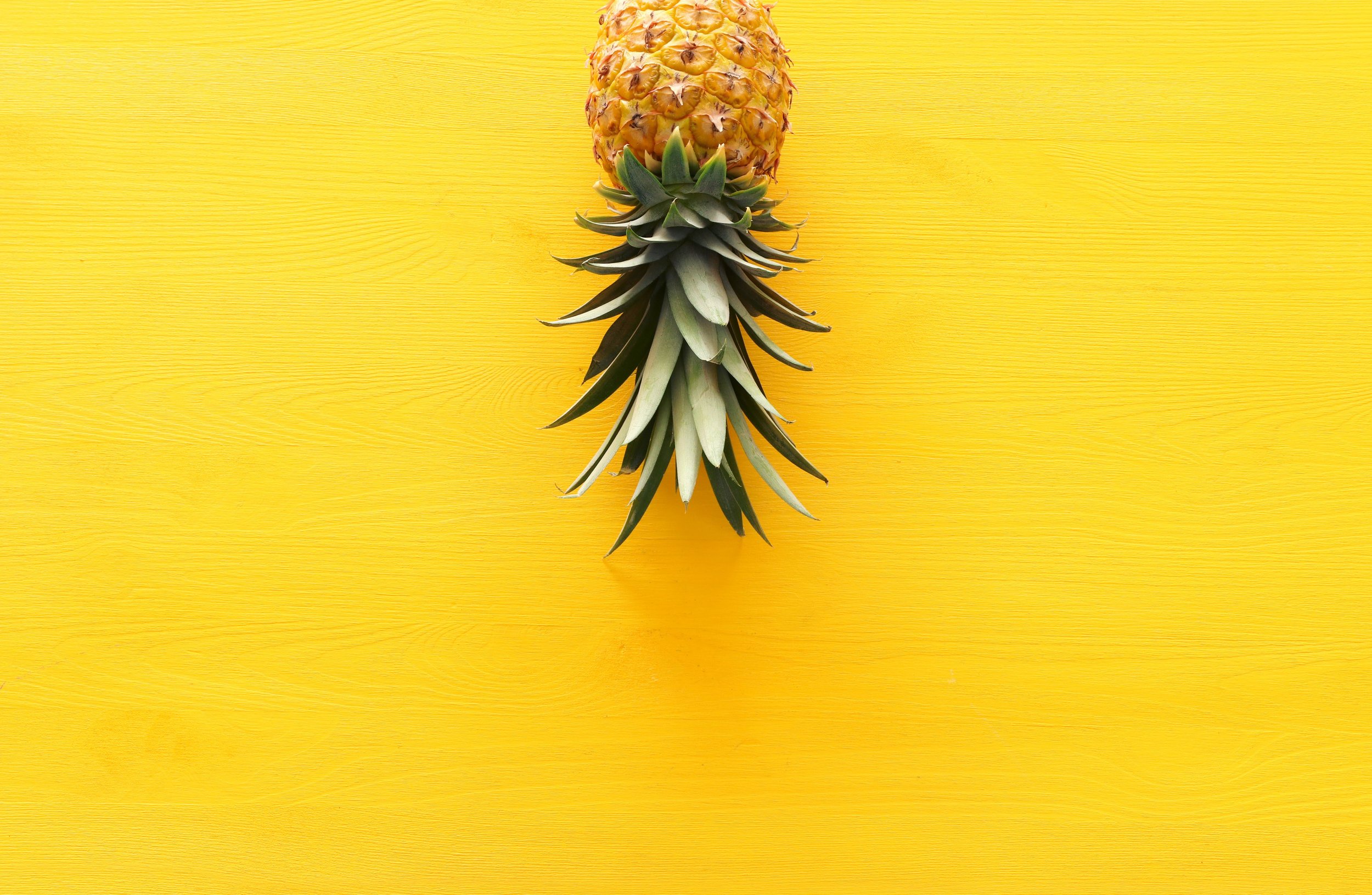
Blog

Which STD Tests Should I Get?
There are so many STD’s. Click on the arrow to find which tests you should get.

Endometriosis, The Mean Pelvic Squatter.
What are the symptoms of Endometriosis?
Endometriosis is a sneaky problem. It can masquerade as all sorts of other health issues. It can also be completely silent (which seems super crazy after you read the rest of this blog)! The most common symptom of endometriosis is painful, crampy, heavy periods often starting in the late teens or early 20’s. Some women have other symptoms such as pain with deep penetrative sex, unusual fatigue or infertility problems. Other women have awful bloating, commonly referred to as “endo belly” where they may look pregnant during their periods. Diarrhea or rectal bleeding can happen, as well as urinary symptoms like feeling the need to pee all the time. You can see why it’s a little hard to pin down what’s wrong sometimes.

The Most Common STD You've Never Heard Of
Catching an STD can seem like a huge deal. The good news is, most STDs are easily treated, and even curable. The problem is, you need to know you have it to get treated... and with this STD, only 30% of people have symptoms! You can pass it on or catch it without even knowing. And if you’re the one with symptoms, it’s not super pleasant.

Take Me to Church! The Vaginal Vestibule & Sexual Pain.
What is the Vaginal Vestibule?
I think it's fitting that the entrance to your vagina has the same name as the entrance to a church, don't you? Yep, the vestibule of a church is the outer courtyard or the entrance room. The vestibule of your vagina is the skin just around the vaginal opening. It is what welcomes any friendly visitors to the vagina. In order to get into the vagina, the vestibule must be entered first.

Queefing- the feminine way to pass gas
UM, PARDON ME?
I've been seeing a lot of questions lately in my office and online about "queefing". Whomever came up with the term queefing, in my humble opinion, is an absolute genius! So, what exactly is the definition of queefing? According to Dictionary.com:
NOUN: Slang: Vulgar. an expulsion of air through the vagina.

Get Slick. Let’s Talk Lube, Part 2.
Maybe you want to turn a hobby into something more. Or maybe you have a creative project to share with the world. Whatever it is, the way you tell your story online can make all the difference.

Get Slick. Let’s talk Lube Part 1.
When things get going in the bedroom, most women notice something happening down below. There’s tingling, warmth, sensitivity, and extra wetness. But, did you ever wonder where that wetness comes from? Or if it is important to be lubricated? And what if you don’t get wet? Ladies, let’s talk lube!

The Ugly Step-Sister of Endometriosis
I bet you didn't know Endometriosis has a sister?!?
And she's seriously ugly, deceptive, mean, and cruel. Let's look at who she is and how she works. Once we've given this awful gal a name and explained how she works, you can ask your GYN about her and see if there's any chance she's living in your body without your knowledge...

Not Tonight Dear, I Have a Vagina-Ache
Am I Weird?
Women are supposed to like sex, right? I mean, all girls dream of the perfect mate that will woo her and wed her, and bed her. We dream of candlelight dinners on the beach, and long walks hand-in-hand. We long to feel so special to someone, and so comfortable, that you want to be intimate with them in every way. So, why do some of us not feel like that? Why do we avoid sex?

Christmas hurts! Why pelvic pain flares during the holidays.
Holiday Heart attacks
Ok, this blog is supposed to be about pelvic pain...why are we talking heart attacks? Work with me here, and we'll get to the pelvic pain in a minute.
There's a really disturbing thing that happens, specifically on Christmas day and New Years. It's not the weird red-clad man climbing into strangers homes, dropping off gifts, and stealing cookies. It's the rate of sudden cardiac death. More people die of heart attacks on Christmas day and New Years than any other day in the year. Seriously? Yes. And it's not just old people who have no one to celebrate with. It's across the board.

How to Make Your Own "Marijuana"
What's up with Marijuana and Pain?
I have at least a few patients per week ask my opinion on marijuana for chronic pain. It's all over the media, and certainly running around in many Facebook groups for pain sufferers. So, is there really anything to this? Actually, there is. With a quick medical literature review, one can find oodles of legitimate research about marijuana, its effects on pain, and its ability to augment the effects of opiate narcotics. The better question is "Why is it still an "investigational" drug?" Unfortunately, I don't have any power over the regulation of medical marijuana. However, I and many of my colleagues are pretty convinced that there's enough evidence for marijuana's benefit in pain management to make a good argument for a change in its drug status.

Fight Pain with Happiness
In our hurried, anxious society it’s hard to be happy. It takes work and creativity to enjoy ourselves. But did you know that happiness helps reduce pain?
How is that possible? Well, pain is very context driven. The brain only perceives pain when it makes sense, under the right context. The whole purpose of pain is to alert the brain to possible tissue damage, so you’ll react - like move your hand off a hot stove. When the context is wrong, i.e. you’re happy and enjoying yourself, the pain signals don’t make sense and the brain assumes they aren’t as important.

The Sources of Pain
The Source Makes a Difference
Why do we even have pain signals?
You'd think the whole world would be better if we just didn't have pain at all. But it's simply not that easy. Pain is actually really important. The whole purpose of pain is to alert your brain to possible tissue damage, so you move your hand off a hot stove. People who have spinal cord injuries sometimes get a cut where they can't feel it. The cut then becomes infected, and the person doesn't know until they're really sick with high fevers and possibly sepsis. It's important for our bodies to be able to feel pain to keep us safe.

How Your Body and Brain Process Pain
Pain is processed differently, depending on its source.
When pain is generated in your body, it is transmitted as a signal to the spinal cord, past several gateways, and then to the brain where it is finally processed. Once the brain decides the signal warrants a response, and what kind of response, it sends a signal back down to the body for a reaction.

What's in the Pelvis?
Understanding the complexity of the pelvis goes a long way in understanding why it may be difficult to pinpoint and treat the exact source of your pain and discomfort.
The pelvis is a tight area with many organs and structures. It includes your bladder, uterus, Fallopian tubes, ovaries, bowels, muscles, nerves, skin, and more!

How Pain Works
All pelvic pain patients have several things in common. Pain starts in the body, gets sent up the spinal cord, and gets processed in the brain. This happens in every single person. It's kind of like a relay race. If the baton doesn't get passed, or if someone poops out and stops running, the baton never makes it to the finish line. Without a pain signal or the ability to relay and process it, you wouldn’t have pain. Think about people with spinal cord injuries and paralysis. Paralyzed people can’t feel pain below their injury. The pain signals are still there, but they can’t get to the brain. The pain doesn’t get past the injury in the spine. No relay, no pain.

Feed Your Body Good: Avoiding foods that cause pain
YOUR DIET
Your diet is a huge factor affecting inflammation in the body. As we discussed in “You feel what you eat,” if you eat foods that cause inflammation, you will have more pain. Avoiding all inflammation-causing foods seems logical but would be very difficult. So the idea isn’t to remove these foods from your diet entirely, but to reduce your general intake.

You Feel What You Eat
You’ve heard the saying “you are what you eat,” right? Well, you also “feel what you eat”. If you eat foods that cause inflammation, you’ll have more pain. Your diet is a huge factor affecting inflammation in the body. And inflammation is a context in which your brain thinks pain signals are more important. Inflammation makes your pain sensing nerves more sensitive and jumpy.

Why having sex is good for your vagina
Listen up, Ladies!
First, I'd like to commend my colleague, Dr. Jen Gunter, for gracefully addressing all of the media coverage of her vagina recently. Reading her rebuttal to all the men who had the gall to critique her vaginal aroma was the highlight of my month! One phrase she used in discussing vaginal health was "the vagina is a self cleaning oven." I've used this phrase with my patients too. There's a lot of confusion out there about vaginal odors due to the entire section of Walgreens dedicated to it. I agree that this whole section of the store should be removed. Another catch phrase I use a lot with my more mature patients is "The vagina is a use it or lose it kind of organ" You'd be surprised at the reactions I get. Most women either raise an eyebrow, or full out laugh. Beautiful ladies, I'm serious. The vagina needs to be used regularly when you're heading into menopause or you'll lose the ability to use it, potentially forever.

You're not alone! Pelvic pain is really common
The Puzzle of Pelvic Pain
I've fairly recently been invited to join a Facebook group of people suffering from pelvic pain problems. One of my patients invited me to the group, and let me tell you, it's an amazing cadre of women. They lift each other up, give encouragement, and point each other in the right direction for getting a diagnosis etc... I feel kind of like an outsider in there because as much as I'd love for it to be possible, I can't diagnose over the internet. It's really a puzzle figuring out where your pain is coming from, and a hands on exam is absolutely necessary. That's actually the most fun part of my job. I've always loved working puzzles.